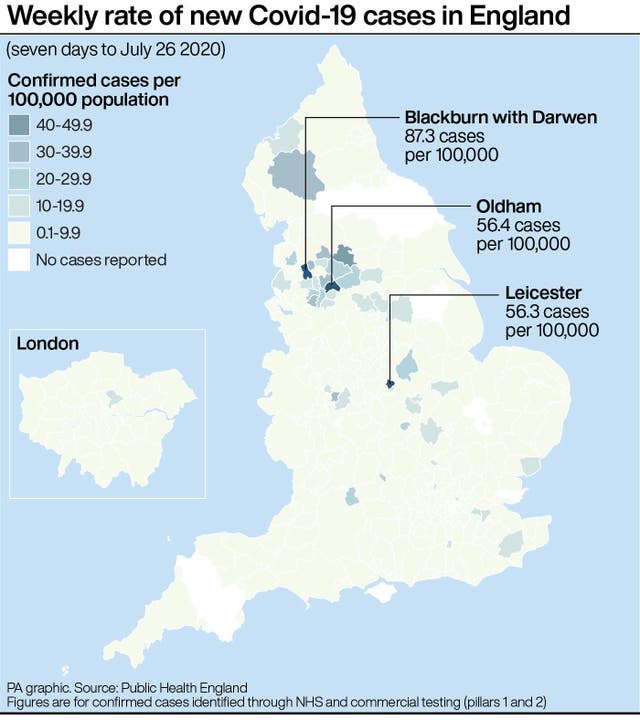
More than one in 10 people admitted to a Manchester hospital with coronavirus reported a deterioration in their hearing eight weeks after discharge, a study has found.
Scientists say there is an urgent need to investigate the acute and temporary effects of Covid-19 on hearing and the audiovestibular system.
A total of 121 adults admitted to Wythenshawe Hospital, part of Manchester University NHS Foundation Trust, took part in a phone survey.
When asked about changes to their hearing, 16 of them (13.2%) said their hearing had worsened.
Eight people reported a deterioration in their hearing and another eight reported tinnitus-type noises that are not caused by an outside source.
Researchers say the results, published in a letter to the International Journal of Audiology, add to a growing body of anecdotal evidence that Sars CoV-2 has long-term impacts on health, and possibly hearing.
Kevin Munro, professor of audiology at the University of Manchester and NIHR Manchester Biomedical Research Centre hearing health theme lead, said: “We already know that viruses such as measles, mumps and meningitis can cause hearing loss and coronaviruses can damage the nerves that carry information to and from the brain.
“It is possible, in theory, that Covid-19 could cause problems with parts of the auditory system including the middle ear or cochlea.
“For example, auditory neuropathy, a hearing disorder where the cochlea is functioning but transmission along the auditory nerve to the brain is impaired, could be a feature.”
People with auditory neuropathy have difficulty hearing when there is background noise, such as in a pub.
A condition called Guillain-Barre syndrome has also been linked to auditory neuropathy, which is also known to have an association with Covid-19.
Researchers say more study is needed to be able to identify why there is an association between the virus and hearing problems.
They caution their review in June identified reports of hearing loss and tinnitus, but there were only a small number of studies and the quality of evidence was low.

Prof Munro said: “While we are reasonably confident in the differentiation of pre-existing and recent changes in hearing and tinnitus, we urge caution.
“It is possible that factors other than Covid-19 may impact on pre-existing hearing loss and tinnitus.
“These might include stress and anxiety, including the use of face masks that make communication more difficult, medications used to treat Covid-19 that could damage the ear, or other factors related to being critically ill.
“That is why we believe there is an urgent need for high-quality studies to investigate the acute and temporary effects of Covid-19 on hearing and the audiovestibular system.
“Timely evidence for decision-makers is urgently needed, so we need to be able to act quickly.”
The study was conducted by University of Manchester audiologists, supported by the NIHR Manchester Biomedical Research Centre.


Comments: Our rules
We want our comments to be a lively and valuable part of our community - a place where readers can debate and engage with the most important local issues. The ability to comment on our stories is a privilege, not a right, however, and that privilege may be withdrawn if it is abused or misused.
Please report any comments that break our rules.
Read the rules here